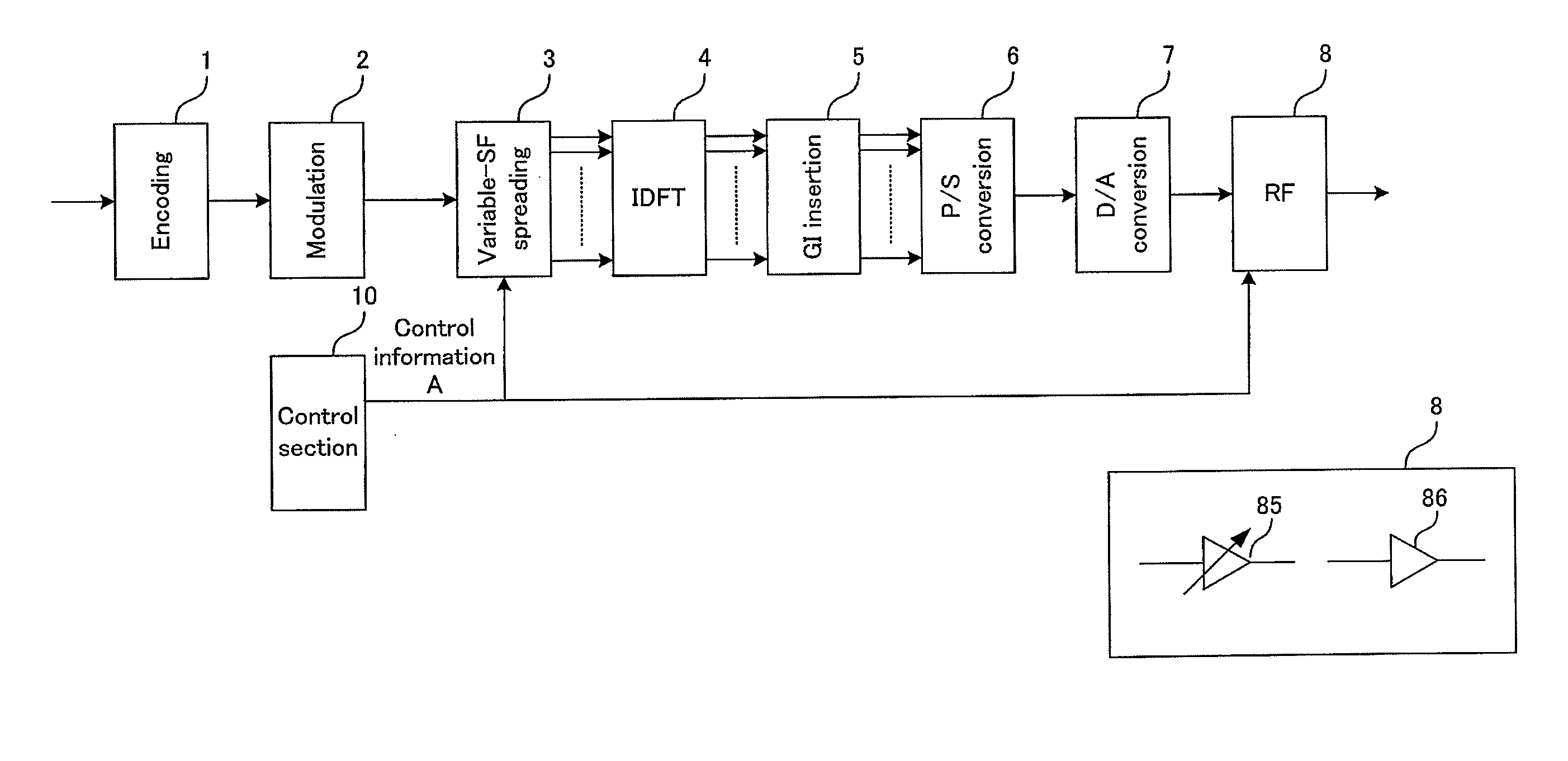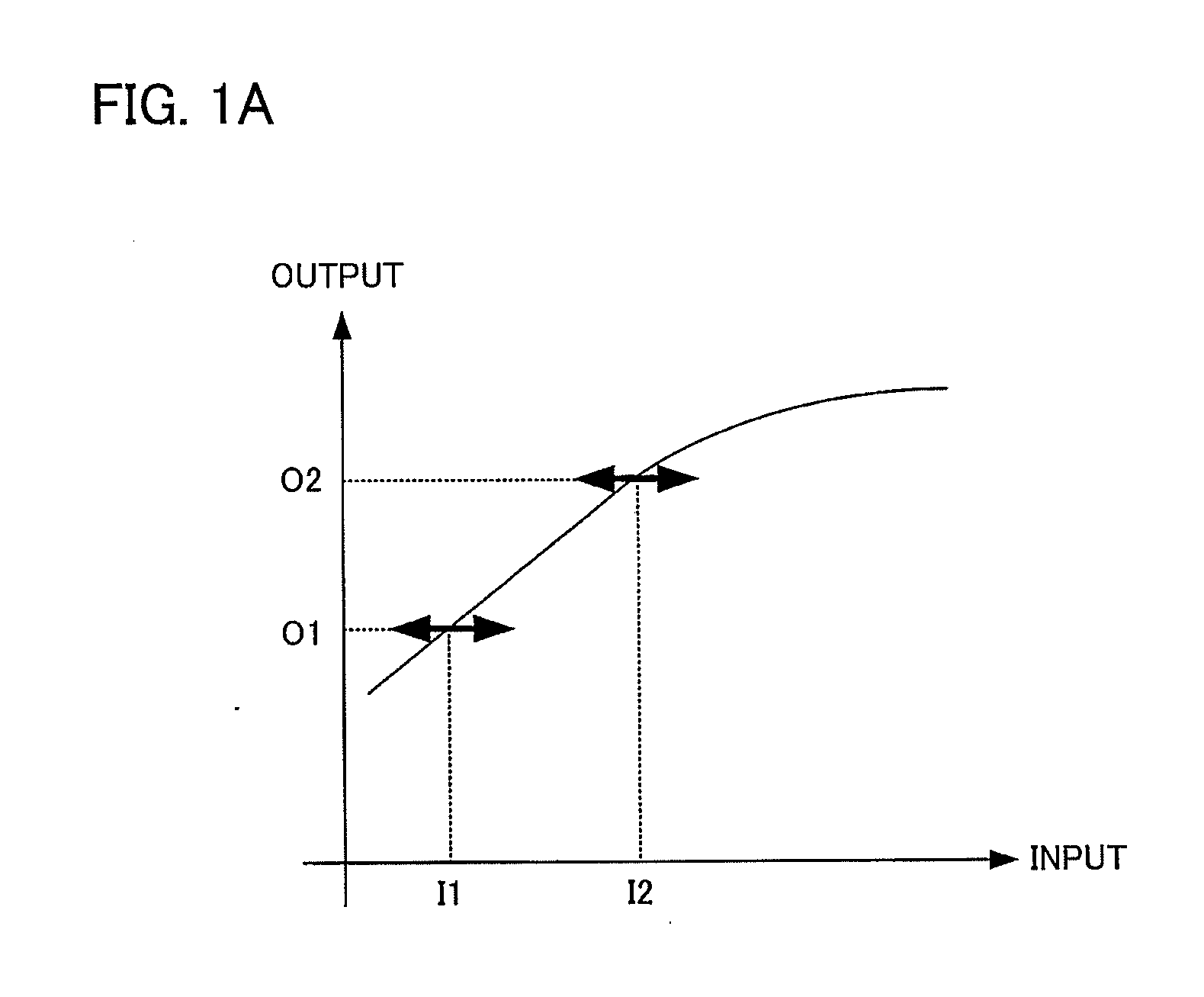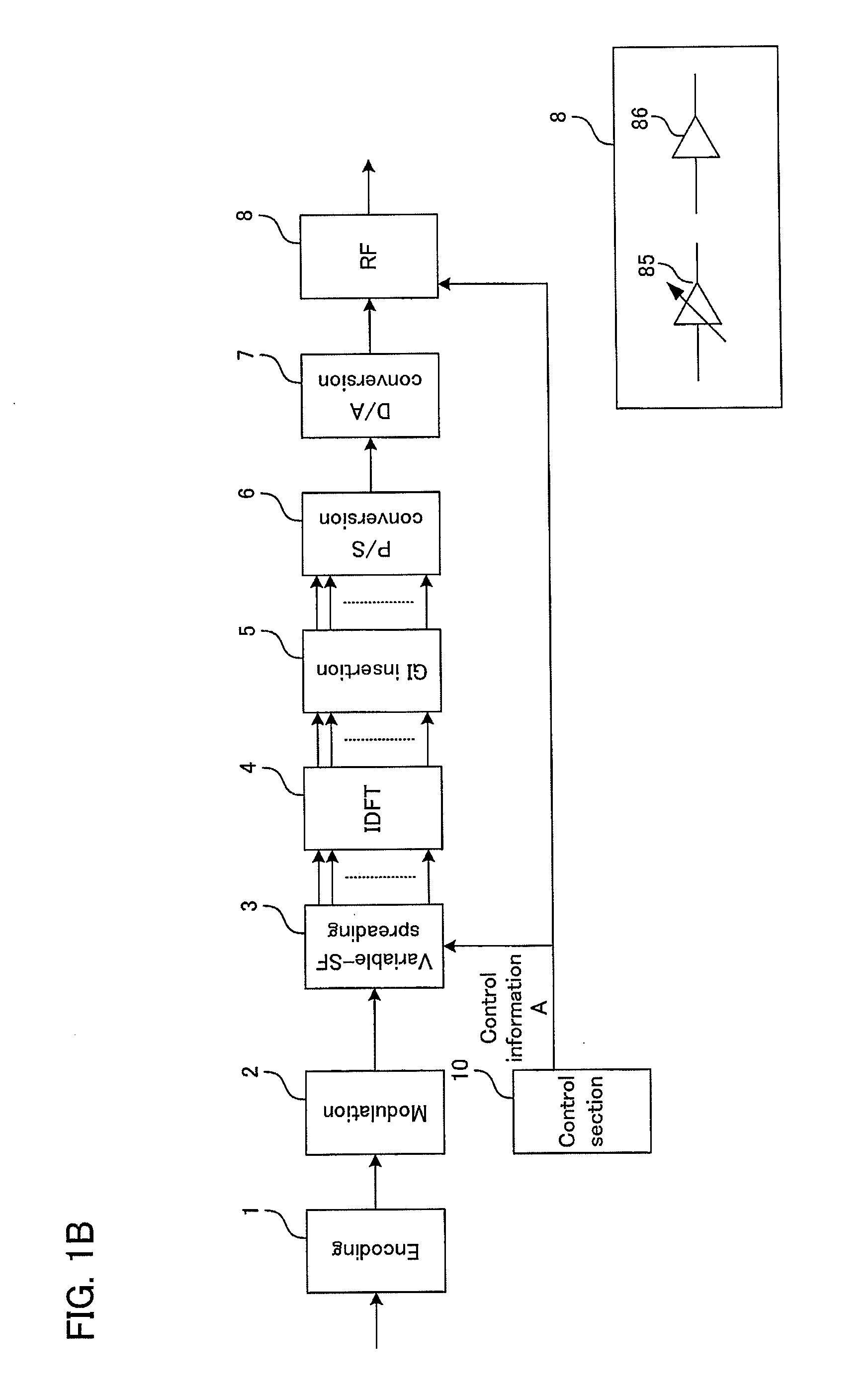Radio communication method, radio communication system, and radio transmission apparatus
a radio communication system and radio transmission technology, applied in the direction of multiplex communication, orthogonal multiplex, wireless communication, etc., can solve problems such as widespread interference, and achieve the effect of minimizing degradation of characteristics and flexible communication
- Summary
- Abstract
- Description
- Claims
- Application Information
AI Technical Summary
Benefits of technology
Problems solved by technology
Method used
Image
Examples
first embodiment
[0084]Since the present invention performs spreading in frequency domain but sets data efficiency to 1, it cannot spread effect when an interference signal has a similar signal form, which leads to degradation in communication quality. This is because correlation becomes high due to use of the same spreading code in all cells that give rise to effect of interference. When considering interference alone, multiplication of a scrambling code is an option, which is also shown in the Non-Patent Document 1, but it significantly degrade PAPR characteristics of signals. The present embodiment shows a configuration of transmission and reception apparatuses that reduces effect of interference without degrading PAPR characteristics.
second embodiment
[0085]FIG. 8 is a functional block diagram showing an exemplary configuration of a transmission apparatus according to the invention. In the figure, blocks having the same functions as those shown in FIG. 1 are given the same reference numerals. The transmission apparatus shown in FIG. 8 further includes a repetition section 11 and a scrambling section 12 in addition to the configuration of FIG. 1B. From the control section 10, control information B is input to the repetition section 11. The repetition section 11 has the capability of repeating an input signal a number of times specified in control signal B. The scrambling section 12 has the capability of scrambling input data with a random code. The scrambling capability can be realized by multiplying an input signal by ±1 randomly in a simplest case. A random signal for scrambling can be of any of various patterns, but is preferably one that has no correlation with neighboring base stations. Also, to avoid stationary errors, it is...
third embodiment
[0116]As a specific example, downlink communication between the base station and terminal station B in which terminal A relays data will be described given the OFDMA system shown in the FIG. 18 shows an example of a frame format for use when relay is performed, where slots F1 to F3 at T3 (the cross-hatched slots) are slots allocated to communication from the base station to terminal A and slots T7 to T9 at F1 (the gray slots) are slots allocated to communication from terminal A to terminal B. It is assumed here that the base station does not perform transmission in slots T7 to T9 at F1.
[0117]From the base station to terminal A, data destined for terminal B is transmitted. For this transmission, there is no particular SF that is optimal, and any scheme may be used as long as terminal A can receive the data. However, to complete retransmission within the same frame, transmission of the data preferably finishes at an early stage in the frame (i.e., a stage with a smaller time sub-chan...
PUM
 Login to View More
Login to View More Abstract
Description
Claims
Application Information
 Login to View More
Login to View More - R&D
- Intellectual Property
- Life Sciences
- Materials
- Tech Scout
- Unparalleled Data Quality
- Higher Quality Content
- 60% Fewer Hallucinations
Browse by: Latest US Patents, China's latest patents, Technical Efficacy Thesaurus, Application Domain, Technology Topic, Popular Technical Reports.
© 2025 PatSnap. All rights reserved.Legal|Privacy policy|Modern Slavery Act Transparency Statement|Sitemap|About US| Contact US: help@patsnap.com



